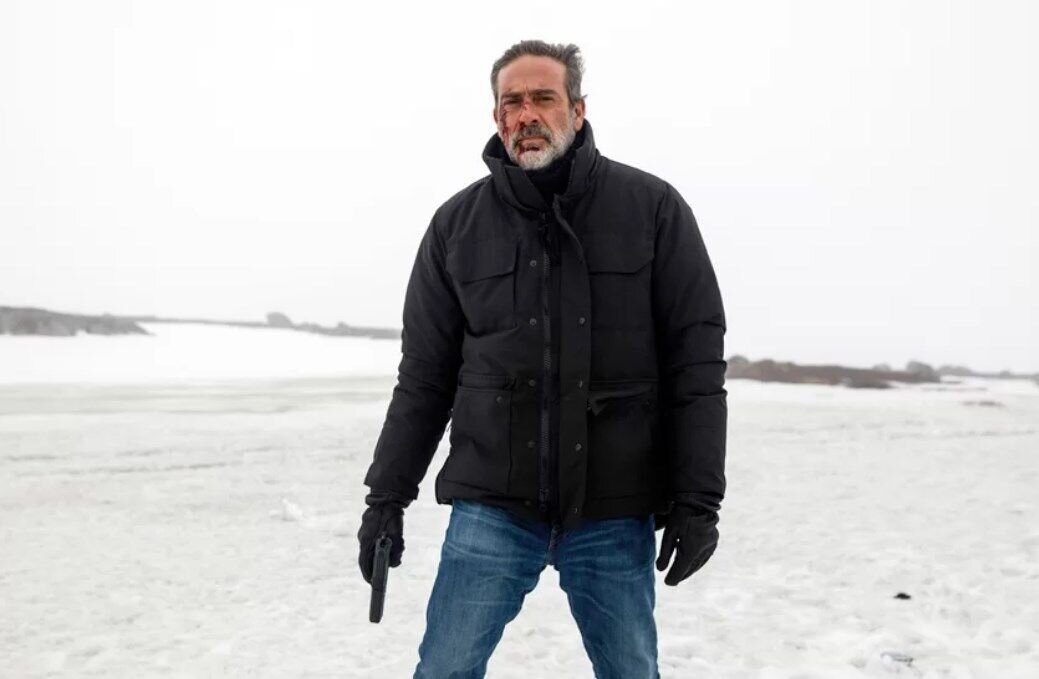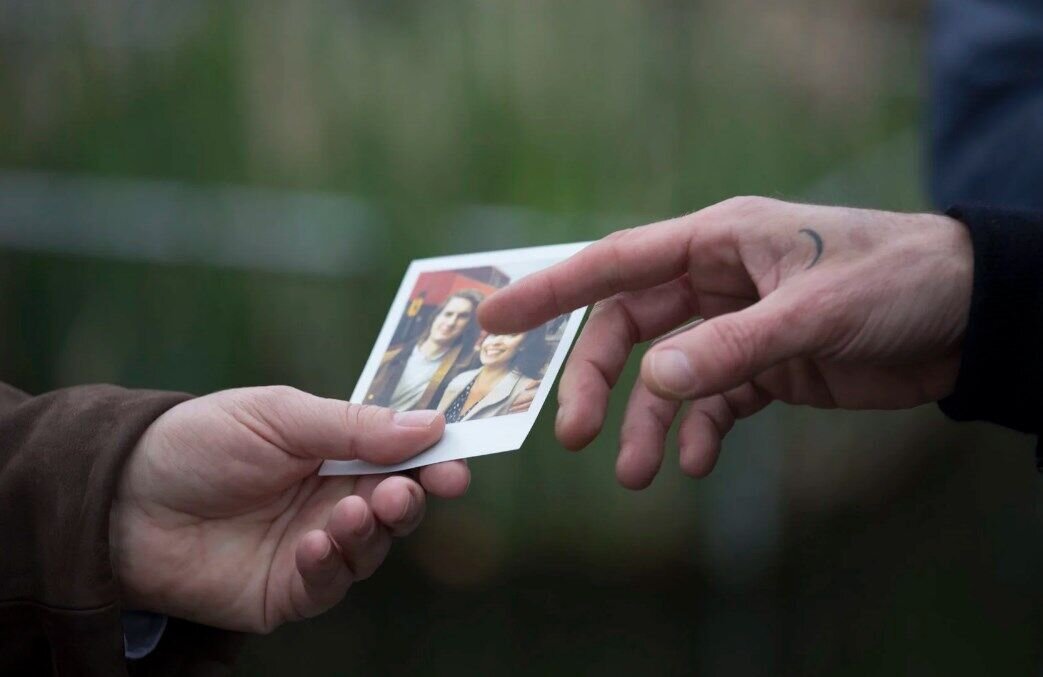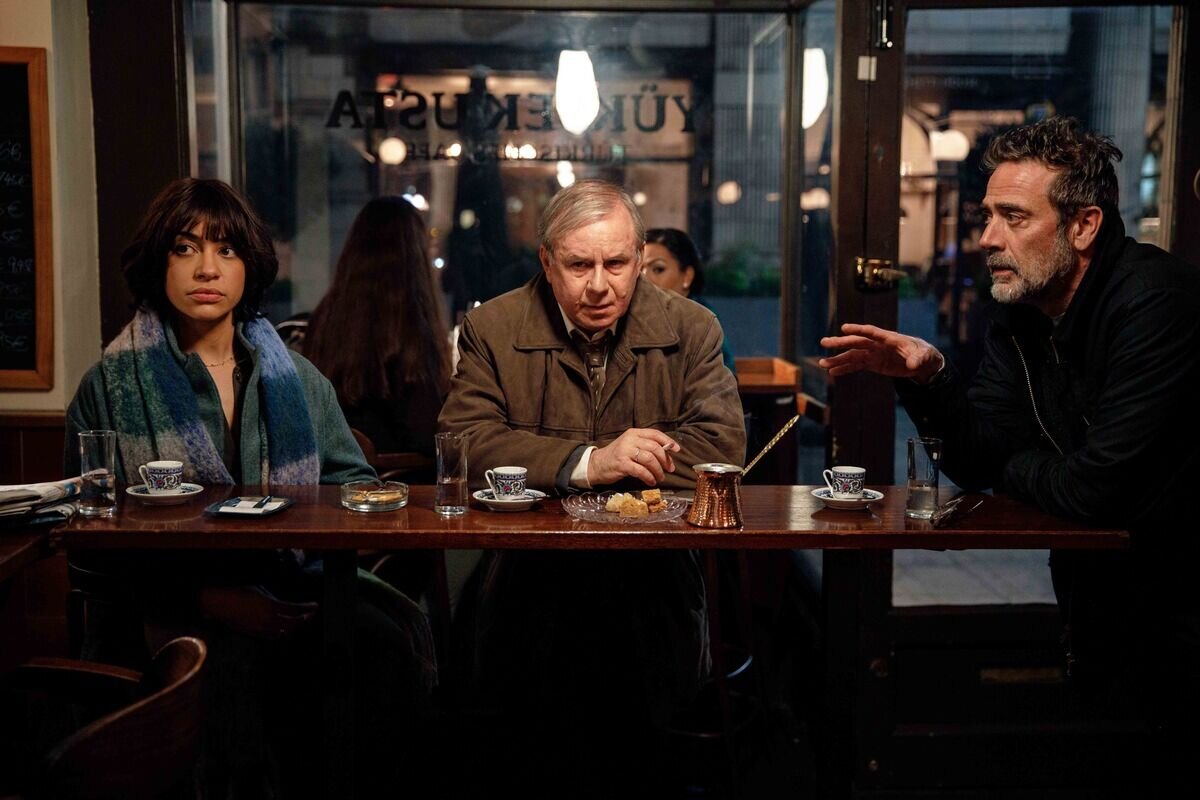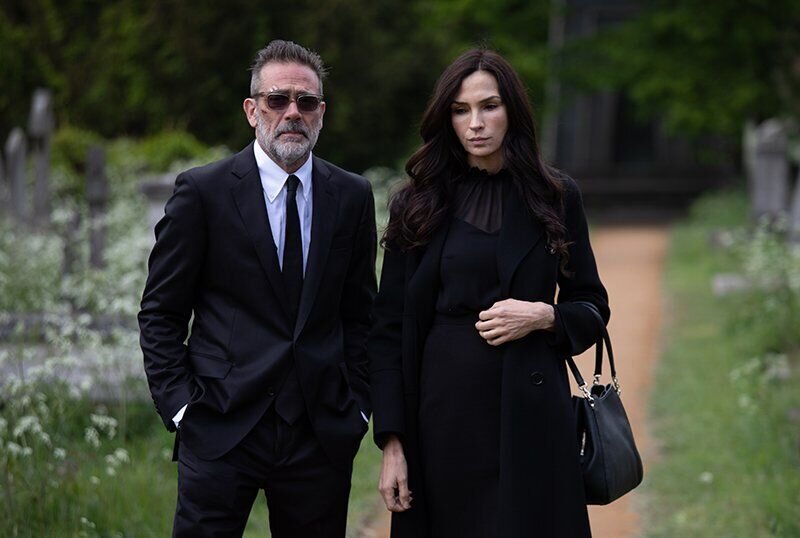«The Postcard Killings» - Film Review by Kinoafisha

A detective story about a bereaved father investigating his own daughter's murder.
Jacob (Jeffrey Dean Morgan), a New York cop with thirty years of experience, is devastated by the horrific death of his daughter, who went on a trip with her husband. Jacob spirals into self-destruction, drowning himself in alcohol. His ex-wife (Famke Janssen) initially blames him for everything but then pleads with him to find the culprit at any cost. It turns out that the day before the incident, a journalist from a local newspaper received a postcard from the killer with a cryptic message. The same pattern repeats in Madrid and a couple of days later in a hostel in Munich. The circumstances are the same: European cities, newlyweds become victims, someone drains all the blood from their bodies, partially dismembers them, and takes certain body parts, then creates sculptures from the corpses displayed in local museums. The bereaved father is convinced that these crimes are connected. The police initially refuse to assist him, relying on Jacob's civilian status regarding the case. Determined, the hero decides to investigate on his own.

The film adaptation of the eponymous novel by renowned genre craftsman James Patterson (Alex Cross series) and Swedish writer Lisa Marklund initially had great potential, especially with the involvement of perhaps one of the most famous Bosnian directors, an Oscar winner and recipient of numerous festival awards (from Cannes to Berlin), Danis Tanović. What appealed to him in this material, adapting the author of "No Man's Land," is hard to say. While his feature-length English-language debut, "Triage," with Colin Farrell in the lead role, had both acute problems and a political subtext, "The Postcard Killings" hardly differ from an average procedural pilot on one of the cable TV channels due to its weak screenplay adaptation. Other adaptations of Patterson's works had a larger scope, whereas the constant shifting between major European cities in "The Postcard Killings" does not enhance the monotonous development of the detective plot. Initially, Tanović tries to dilute the mediocrity of the material with unconventional artistic choices: natural lighting, leading several scenes in the first act through reflections, from mirrors to glass. The editing logic is reminiscent of genre films from the late nineties to the early 2000s, which possessed a unique aesthetic of a flashy thriller, where the dynamics were driven by abrupt, unmotivated cuts, similar to Renny Harlin's "Mindhunters."

"Postcard Killings" proves to be a misstep with its use of flashback sequences reminiscent of wedding magazine ads and the director's insistence on showing the face of the main victim. If Jacob's daughter had remained a silhouette, hidden under a sheet in the scene where she is recognized by the protagonist, "The Postcard Killings" could have had the opportunity to be structurally more complex. It could have created the illusion of timeline disparities and stunned the viewer with the simultaneous development of two storylines leading up to the climax. However, besides the notable theme of the correlation between high art and death, the other motivations behind these murders are too drawn-out and ultimately turn the film into a prototype of a serial product. What truly deserves attention is the performance of the talented actor Jeffrey Dean Morgan, who even in the face of a superficially written character as a grieving father, strives to make his portrayal believable.

"The Postcard Killings" will appeal to both fans of the actor and enthusiasts of the detective genre. It is somewhat ironic that the cinematographer for the film is Salvatore Totino, who once worked with Ron Howard on the trilogy about Professor Robert Langdon ("The Da Vinci Code," "Angels and Demons," "Inferno"). There is certainly a conceptual connection between these stories after all.
